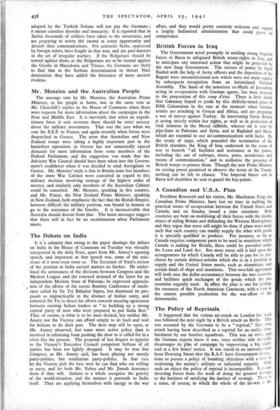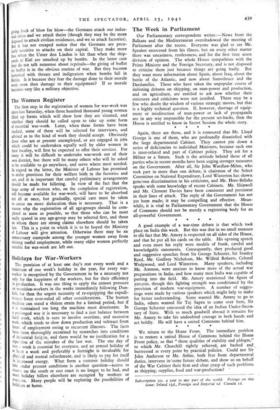The Policy of Reprisals.
It happened that the violent air-attack on London. last wed: was followed the next night by a British attack on Berlin. This was assumed by the Germans to be a "reprisal," their own attack having been described as a reprisal for an earlier bom- bardment by our bomber squadrons. This was an error, and the German experts knew it was, since neither side notmally disarranges its plan of campaign by improvising a big night- raid at a few honrs' notice. It was stated in an announcement from Downing Street that the R.A.F. have Government inctru-- dons to pursue a policy of bombing objectives with a vicw t° weakening the enemy's military or industrial capacity. With such an object the policy of reprisal is incompatible. It r:calls diverting forces from the work of doing the greatest damage to the business of satisfying the instinct of revenge. There is a sense, of course, in which the whole of the air-war i5 the giving back of blow for blow—the Germans attack our indus- trial cities and we attack theirs (though they may be the more disposed to attack civilian residences, and we to attack factories). But it has not escaped notice that the Germans are pecu- liarly sensitive to attacks on their capital. They make more fuss when the Unter den Linden is hit than when the ship- yards at Kid are smashed up by bombs. In the latter case they do not talk nonsense about reprisals—the giving of buffet for buffet is in the obvious routine of war. But they become hysterical with threats and indignation when bombs fall in Berlin. Is it because they fear the damage done to their morale more even than damage to their equipment? If so morale becomes very like a military objective.



























 Previous page
Previous page